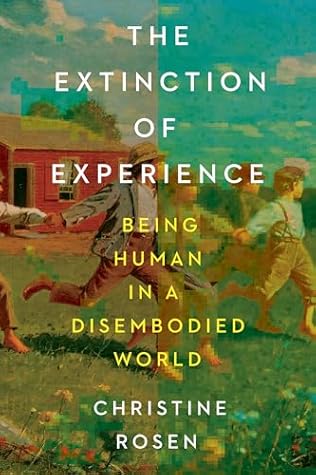More on this book
Kindle Notes & Highlights
Our understanding of experience has become disordered, in ways large and small. More and more people mistrust their own experiences. More and more people create their own realities rather than live in the world around them. We can no longer assume that reality is a matter of consensus.
Today, many of us choose to live in a form of pseudo-reality governed by algorithmically-enabled individual experiences. Much of what passes for authentic experience today is vicarious and virtual.
What do we gain and what do we lose when we no longer talk about the Human Condition, but rather the User Experience?
The human condition is embodied, recognizes its fragility, frequently toggles between the mediated and unmediated, requires private spaces, and is finite. By contrast, the User Experience is disembodied and digital, it is trackable and databased and usually always mediated. It lacks privacy and promises no limits—even after death, when, as several new technologies promise, our digital remnants can be gathered and engineered into posthumous chatbots to comfort our grieving family members.
Many of our current technologies seem to view people as the problem to which devices and platforms and algorithms provide a necessary solution. If earlier technologies were an extension of our senses, today’s technologies train us to mistrust our own senses and rely instead on technology.
Behind the power we wield with our technologies is a timidity and aversion to risk.
What we reject, as we will see, are the inconveniences and small hazards of face-to-face communication, the laborious but necessary practice of doing things with our own hands, and the non-quantifiable experience of unmediated pleasure.
We need to defend the sensory world and remind ourselves of the crucial importance of the physical body, the integrity of physical space, and the need for people to cultivate inner lives. From these flow things that can’t be made by machines: serendipity, intuition, community, spontaneity, and empathy.


